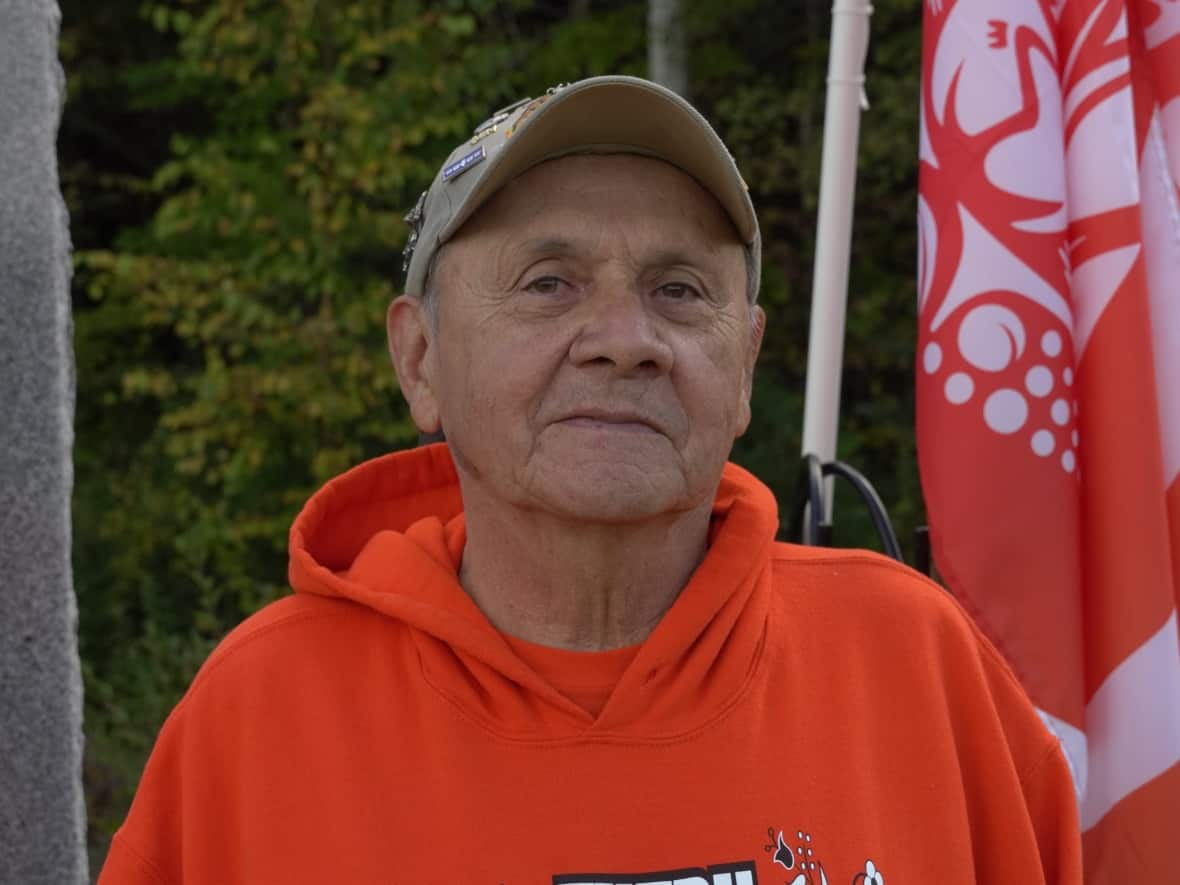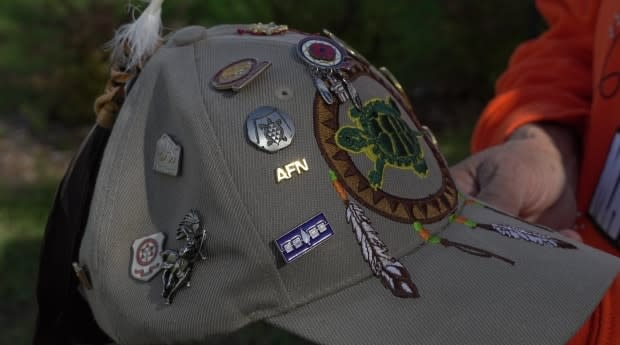'I felt like an outcast': Members of Kitigan Zibi First Nation reflect on Truth and Reconciliation day

WARNING: This story contains distressing details.
David Decontie felt like a stranger to his family.
After coming home from residential school, he found himself disconnected from his community. He'd forgotten his language and he was forced to learn French and English.
"I felt [like] an outcast. I wasn't accepted." said Decontie, who is from Kitigan Zibi Anishinabeg First Nation.
He spent nearly a decade at Kenora and Point Bleue residential schools. The fall after he turned three years old, he was forced to attend residential school along with his two brothers.

While at residential school, Decontie experienced sexual, physical and verbal abuse from religious authorities. He was forced to assimilate, unable to practise his native language, and was reduced to a number.
The schools held their version of the Olympics and survivors were forced to participate. Decontie says they would push children to the limit, no matter if it caused physical harm.
"I fainted once during a mile run. I passed out and they lifted me up and they just carried me to keep on running," said Decontie.
WATCH | Residential school survivor says experience left him disconnected
He remembers a time when the teachers would make him watch movies every Saturday about cowboys and Indians — where the Indians were portrayed as "the bad people."
On the playground, Decontie says at one point he began reenacting scenes from the movie.
"I was shooting the Indians …They had already brainwashed me to know that Indians were no good," he said.
Now, Decontie is gradually relearning his language and his culture with the help of his kids.

Impact of residential school on his family
"I didn't know what being a father was all about," said Decontie.
The trauma he experienced trickled down to his children who could feel the depth of the scars of residential school.
"I had my oldest son in my arms, and I told him, 'Brian, nobody is going to take you or your mother away from me. They're going to have to pay a price if they try,'" said Decontie.
When he first met his wife, Decontie says she taught him about fatherhood and being present. But Decontie's refusal to talk about his trauma led to his wife leaving him for a period of time. It was while they were separated that he began to pick himself up.

Now Decontie has two sons and a daughter who have children of their own. He took his children back to Mashteuiatsh, Que., where he attended Point Bleue residential school.
"I told them, this is where I was. That's how it looked. They sort of understood the meaning of being in residential school and them being my children," said Decontie.
Understanding truth and reconciliation
Decontie says there are still people who doubt his story and other survivors. Today he hopes Canadians can look beyond and reflect on two things: truth and reconciliation.
"Think about those children who never made it home. I made it home but it brought a lot of grief and anger."

Allen Beaudoin, a member of Kitigan Zibi Anishinabeg First Nation, hopes more people will consider how they benefit from the system that has oppressed Indigenous people and learn to change their mindset.
"I hope that people will recognize that we're still here, and that we're stronger than ever," said Beaudoin.
For Delphis Whiteduck Commonda, who is also a member of Kitigan Zibi, the day should be about reflecting and rebuilding relationships.
"Understand that we are still thriving and we can coexist with each other once again," said Whiteduck-Commonda.

Support is available for anyone affected by their experience at residential schools or by the latest reports.
A national Indian Residential School Crisis Line has been set up to provide support for survivors and those affected. People can access emotional and crisis referral services by calling the 24-hour national crisis line: 1-866-925-4419.
Mental health counselling and crisis support is also available 24 hours a day, seven days a week through the Hope for Wellness hotline at 1-855-242-3310 or by online chat at www.hopeforwellness.ca.


